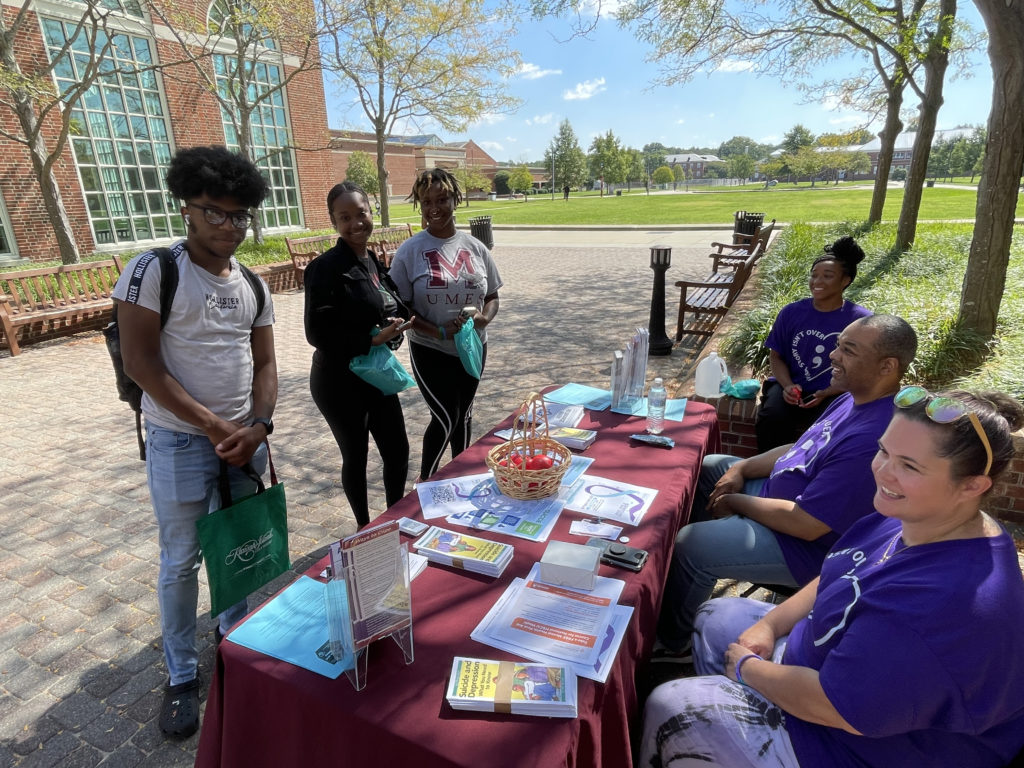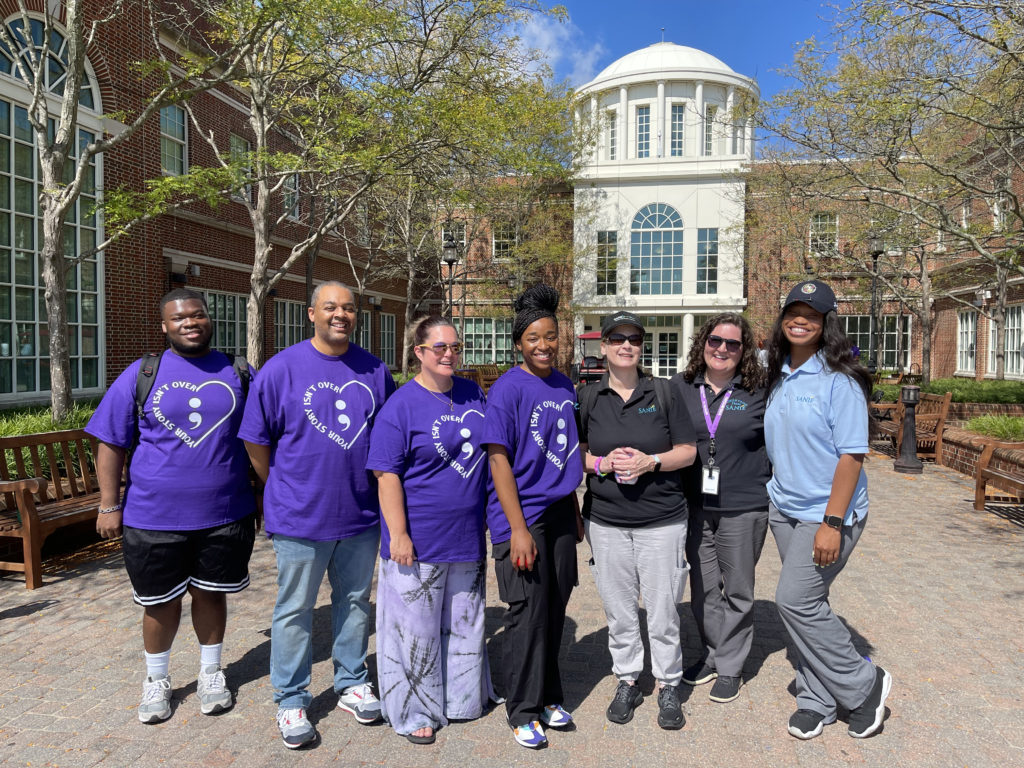
September is dually recognized as “Suicide Prevention Month” and “Recovery Awareness Month,” with both shedding greater light on issues that not only have a devastating effect on the people involved but also on friends and family.
In an effort to bring greater knowledge of the two issues, the University of Maryland Eastern Shore’s Counseling Services held observances with two events focusing on both suicide awareness and overdose awareness.
On Tuesday, Counseling Services, along with the Student Government Association, hosted “My Story Continues;” which focused on offering counseling resources to anyone in the campus community who may be struggling with depression. The event culminated with a memorial walk around the Student Services Center courtyard in honor of those who have been impacted by the loss of a loved one to suicide.
“Suicide Prevention Month is recognized all across the world … and we thought it was very important to bring that awareness to our campus,” said Dr. Malkia Johnson, the director of counseling services at UMES. “Suicide affects everybody. Not just a certain demographic – rich, poor, Black, white, different cultures, and so everyone’s affected by suicide.”
Johnson said according to statistics by the World Health Organization (WHO), 700,000 people die by suicide annually, and for every person who dies by suicide, 20 people are thinking about death by suicide.
“When someone dies by suicide there’s a ripple effect, within the family, the community, and friends, so we thought it was important to bring and shed light on that topic and normalize seeking help,” Johnson said.
Counseling Services will also host a “Recovery Month” table in partnership with the Alcohol, Tobacco, and Other Drug (ATOD) Prevention Center in the SSC Rotunda on Sept. 22 in order to help promote and educate students about recovery.

“Addiction recovery is very, very personal (to me),” said Melanie Spencer, a counselor in Counseling Services and a UMES graduate. “I worked almost ten years in recovery and one of the positions I had was overseeing a recovery program in the community where we worked with complex trauma and substance using disorders.
“I’m very, very passionate about continuing the work here as much as I can. On campus, we don’t see the issues of the heroin opioid crisis as you may see in outpatient programs.”
Johnson and Spencer added that there are numerous resources for members of the campus community to utilize for any issues involving mental health crises of any nature.
“Our message is also about hope and resilience,” Johnson said. “So, together we can do this and we can be stronger and support one another.”
If you are a student in a mental health crisis or considering suicide, you can call the UMES Counseling Services Center at 410-651-6499 from 8 a.m. to 5 p.m. Online referrals and walk-ins are also welcome. You can also text 988 to be connected with a live professional.
You can also call the National Suicide Prevention Lifeline at 1-800-273-8255 (TALK), Life Crisis Maryland Hotline at 800-422-0009, the Mobile Crisis Hotline at 410-931-2214, or by texting ‘HOME’ to 741741.
For help with issues with substance abuse, call the Substance Abuse National Helpline at 1-800-662- HELP (4357), or go online to https://www.samhsa.gov/.

